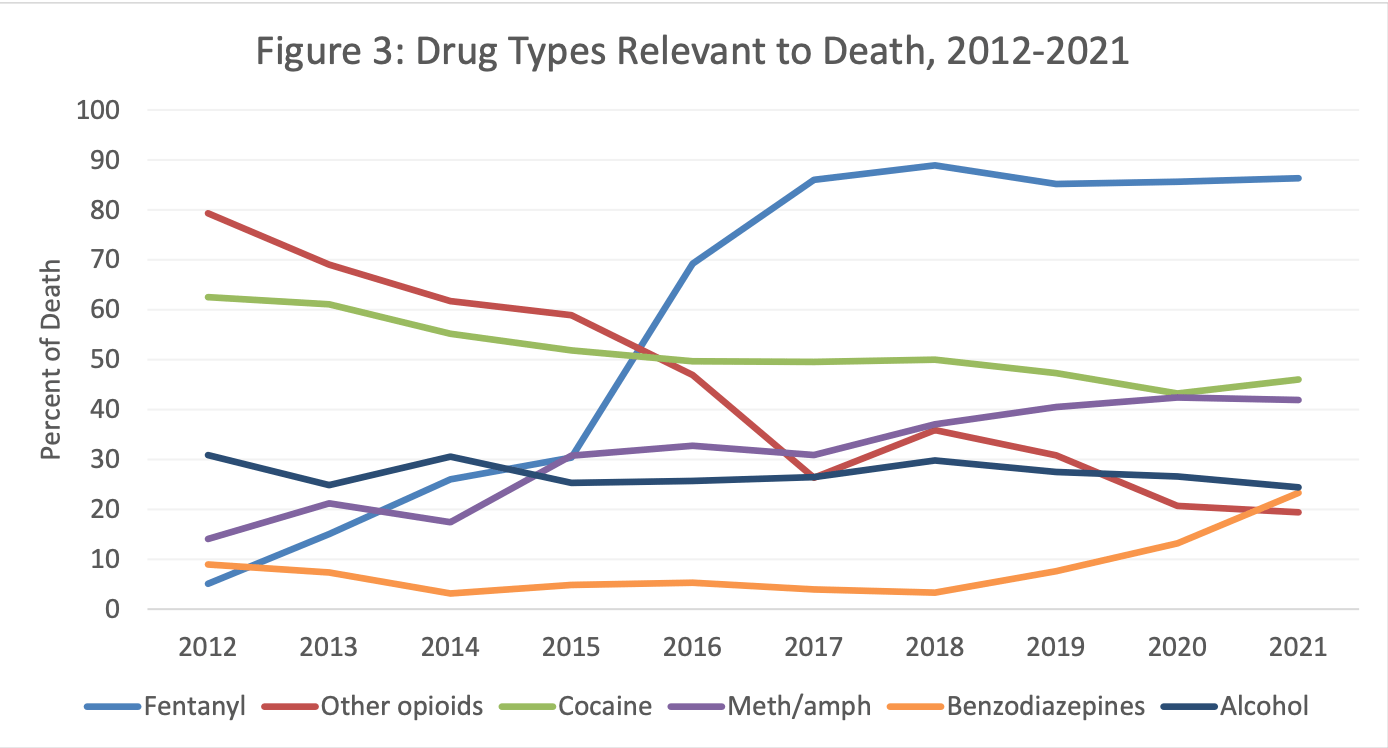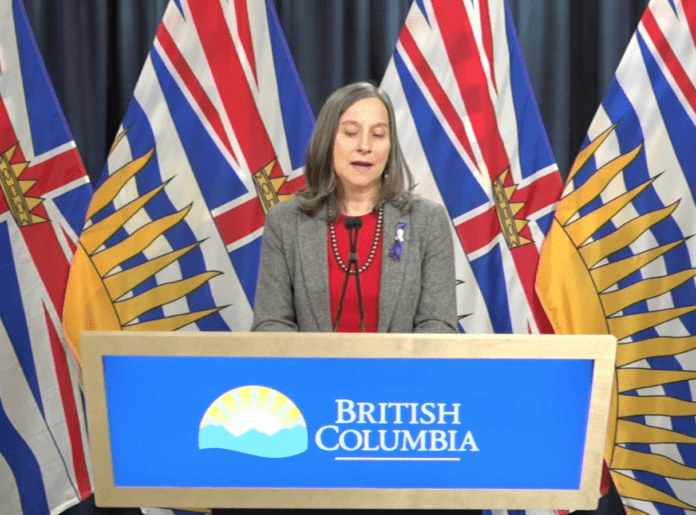BC’s public health emergency regarding toxic drug supply has now entered its eighth year with 2,272 dead in just 12 months.
The BC Coroners Service says that this number will likely rise as additional ongoing investigations are concluded and causes of death can be determined.
Chief Coroner, Lisa Papointe reminded British Columbians in a press conference on Tuesday, January 31st that toxic drug supply continues to be the leading cause of unnatural death in the province.
Cancer is the only thing higher on the list of reasons for lives lost in the province.
“British Columbians across the province are continuing to experience tremendous harm and loss as a result of the province’s toxic illicit drug supply,” said Lapointe.
“Our province continues to lose an average of six lives every day, and many more people experience serious health consequences as a result of the unpredictable, unregulated drug supply.”
2022 saw the second most fatalities due to toxic drug supply with just 34 fewer deaths than the previous year’s 2,306 total deaths.
An average of 189 people died every month in 2022, which means that an average of 6.2 deaths per day were due to drug poisoning.
This isn’t an issue that only affected metropolitan areas of BC, the toxic drug crisis has found its way into every nook and cranny of the province.
Vancouver’s downtown eastside area recorded the most deaths with 319 lives lost in 2022, which accounts for 14% of the province’s total. It is also an area with a high population density of substance users.
According to the BC Coroners Service, Greater Victoria had the third most drug-related deaths by municipality with 157 fatalities in 2022. Only Surrey and Vancouver had more deaths than BC’s capital region. Island Health recorded 386 deaths in total.
Since the public health emergency was first declared in April 2016, at least 11,171 deaths have been attributed to drug poisoning by the BC Coroners Service.
“The reality is that these deaths are preventable,” Lapointe said. “Toxicology data confirms that the drug supply in British Columbia is increasingly volatile and life-threatening.”
“The Standing Committee on Health and two BC Coroners Service death review panels are in agreement that we must rapidly increase access to a safer supply of substances, while at the same time, building out a robust system of evidence-based care.”
“Those dying are our family members, neighbours, friends and colleagues. Urgent action is required to reduce the significant risks that tens of thousands of British Columbians are currently facing.”
Fentanyl remains the most fatal drug, according to the BC Coroners Service. Cocaine, Methamphetamine and opioids were also considerably high on the list.

BC’s most recent move to try to reduce the number of drug-related deaths came only one day prior to this information being released.
The province has decriminalized small amounts of the drugs that are leading to these high death rates. The hope the province has is that by doing this, stigma and shame will be reduced and people will be able to more easily test their drugs and get them from more reliable sources.
Related:
Only one of 2,272 deaths due to toxic drug supply was reported from a prevention site in 2022. This data may mean that the province’s efforts to move more toward a harm-reduction approach may lead to lives being saved if substance users have access to prevention and testing sites.
Even with decriminalization now a reality for British Columbians, this is an issue that Indigenous British Columbians and First Nations communities are overrepresented in.
“First Nations people continue to be disproportionately impacted by the ongoing toxic drug crisis in British Columbia,” said Dr. Nel Wieman, acting chief medical officer, First Nations Health Authority.
“Given that we are nearing the end of the seventh year of a provincewide state of emergency on illicit toxic drugs, it is difficult to accept that more First Nations people in BC have died from illicit toxic drug poisonings than from COVID-19.”
“While there is no doubt that this tragic outcome is due in part to First Nations people experiencing stereotyping, racism and discrimination in many different forms, it also leads one to consider whether or not this pressing issue is receiving the level of priority it deserves.”
Dr. Weiman remarked that the First Nations Health Authority supports the government’s decriminalization of small amounts of illicit drugs, but says there is much more to be done in terms of supports and social aid.



